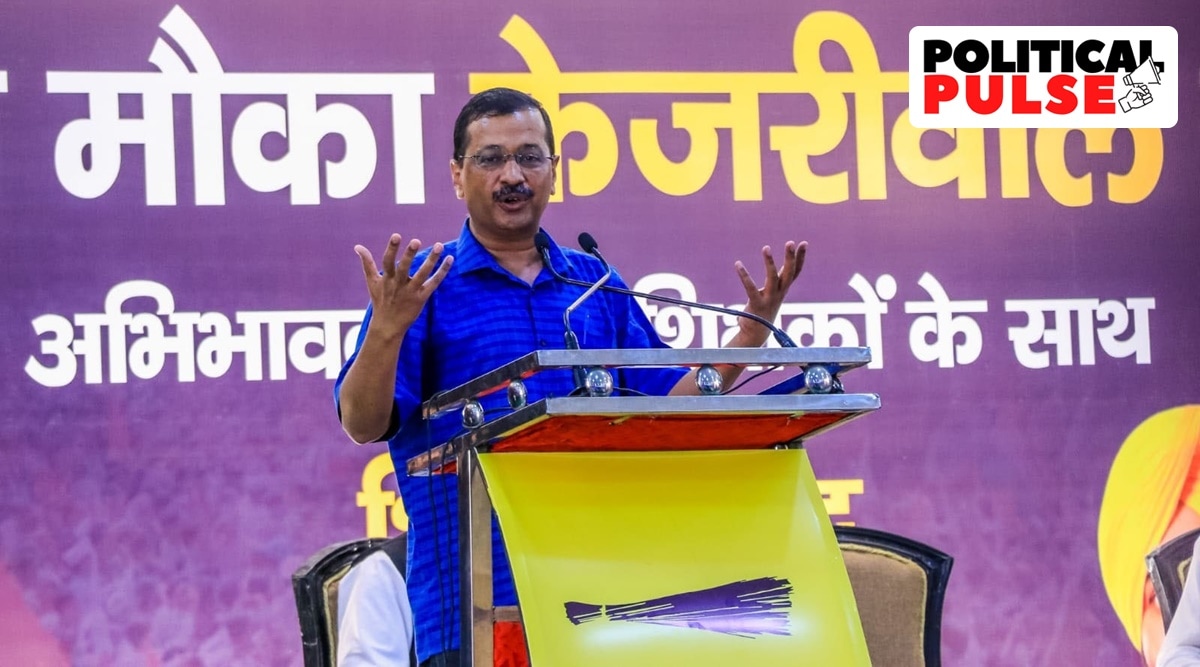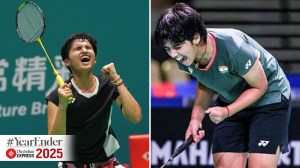Opposition Presidential meeting: 3 reasons for AAP’s no-show
The AAP, which has over the last one decade relegated the Congress to the margins of Delhi politics and Punjab, is not comfortable sharing a common platform with the Sonia Gandhi-led party.
 AAP convenor and Delhi CM Arvind Kejriwal. (Express Photo by Pradeep Kumar/File)
AAP convenor and Delhi CM Arvind Kejriwal. (Express Photo by Pradeep Kumar/File)Back in 2017, as 17 Opposition parties huddled at a luncheon hosted by Sonia Gandhi to pick a Presidential nominee on a hot summer day, AAP was among the notable omissions from the list of invitees.
The Congress kept the AAP away from the joint Opposition table at a time the Arvind Kejriwal-led party was reeling under a string of electoral reverses and police cases against its MLAs in Delhi.
Cut to June 15, 2022: the AAP is the only Opposition party, apart from the Congress, that’s governing two states, with a collective strength of 156 MLAs and 10 Rajya Sabha MPs.
Yet, the party was missing from Wednesday’s joint strategy meeting convened by West Bengal Chief Minister and Trinamool Congress chief Mamata Banerjee to pick a consensus Opposition candidate for the upcoming Presidential polls.
This time, however, staying away was a conscious choice made by the AAP, which is making an aggressive push to grow its footprint in states such as Gujarat and Haryana, among others.
There are three major reasons behind AAP’s no-show”
1. Presence of the Congress
The AAP, which has over the last one decade relegated the Congress to the margins of Delhi politics and Punjab, is not comfortable sharing a common platform with the Sonia Gandhi-led party. AAP traces its genesis to the 2011 India Against Corruption (IAC) movement, which rocked the United Progressive Alliance (UPA) government led by the Congress. The Congress could never recover from the blow dealt by the IAC, a section of which floated the AAP. In 2014, Kejriwal resigned as CM, bringing down the short-lived AAP government formed with the outside support of the Congress, which, along with the BJP, blocked the introduction of a Jan Lokpal Bill in the Delhi Assembly citing constitutional infirmities. The ties between the two parties soured further after their alliance talks ahead of the 2019 general elections broke down, triggering a bitter public spat between Kejriwal and Congress leader Rahul Gandhi.
2. Conscious of its image
The AAP feels its anti-corruption, modern image, with a major focus on addressing governance deficit, does not gel well with the conventional approach of other parties, which “are among those against which the IAC rallied the masses” in the name of Jan Lokpal Bill. The party did show up in such joint forums in the past, though. In 2018, Kejriwal was among the Opposition leaders who attended the swearing-in ceremony of H D Kumaraswamy in Karnataka. He was also present at another joint Opposition rally organised by the TMC in Kolkata in 2019. In February 2019, the AAP also hosted a ‘Save Democracy’ rally in Jantar Mantar, where Kejriwal even shared dais with Congress’s Anand Sharma, among others. But the drubbing in the 2019 general elections has forced a rethink, leading to a change in strategy. While Kejriwal continues to meet Banerjee, and leaders like TRS’s K Chandrashekar Rao and DMK’s M K Stalin, AAP leaders say that in the lead-up to the 2024 polls, the party will largely desist from participating in joint forums like it did in the past.
3. A tussle for space
The fact that Wednesday’s joint strategy meeting was convened by the TMC was also a factor behind the AAP’s absence. The ties between the two parties have taken a hit in the past one year, with the TMC making a surprise foray into Goa ahead of the Assembly polls in the coastal state, where the AAP had been trying to make inroads since 2015. The relations between Kejriwal and Banerjee also came under strain with both their parties vying to fill the Opposition space vacated by a politically feeble Congress. Assam is another frontier where the two parties are set to cross swords in the coming weeks and months. The AAP’s Bengal unit has also been regularly attacking the TMC government.
- 01
- 02
- 03
- 04
- 05































